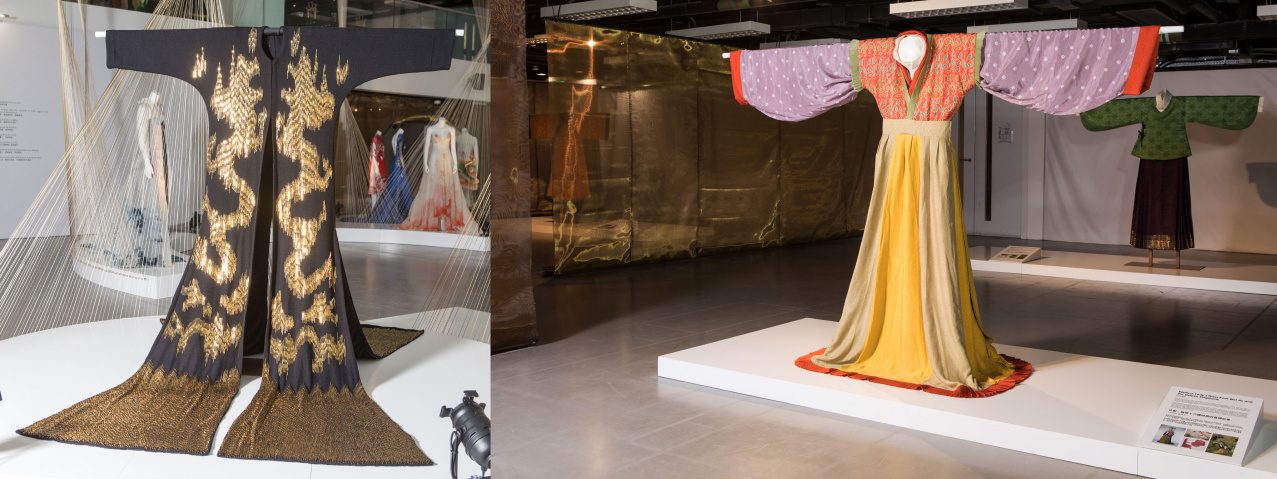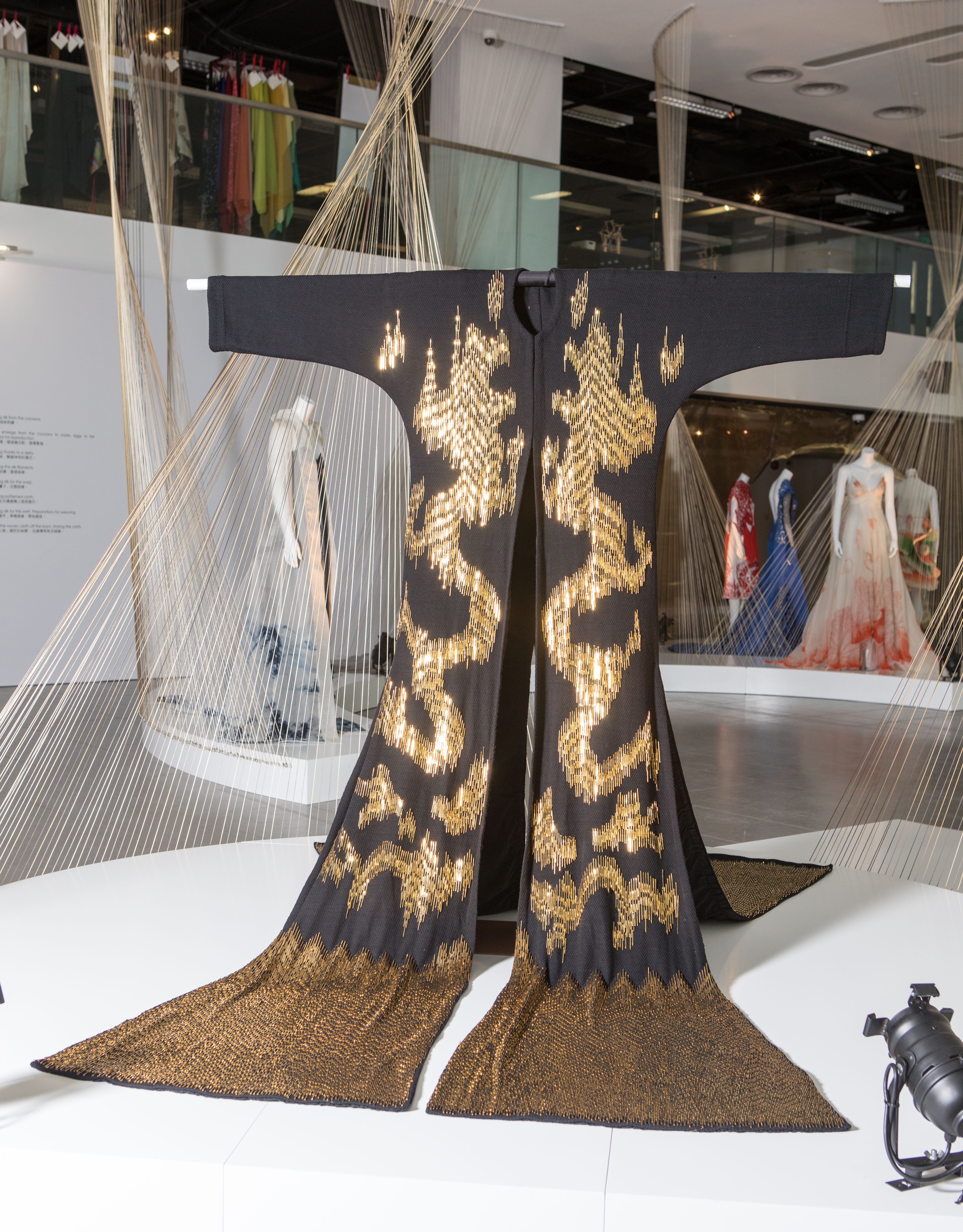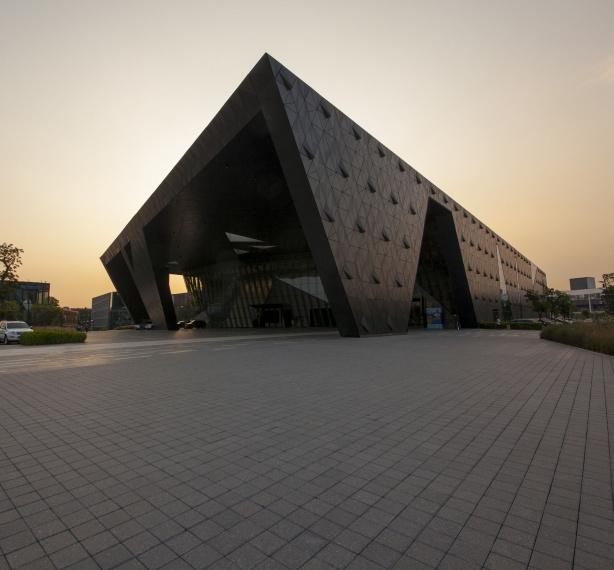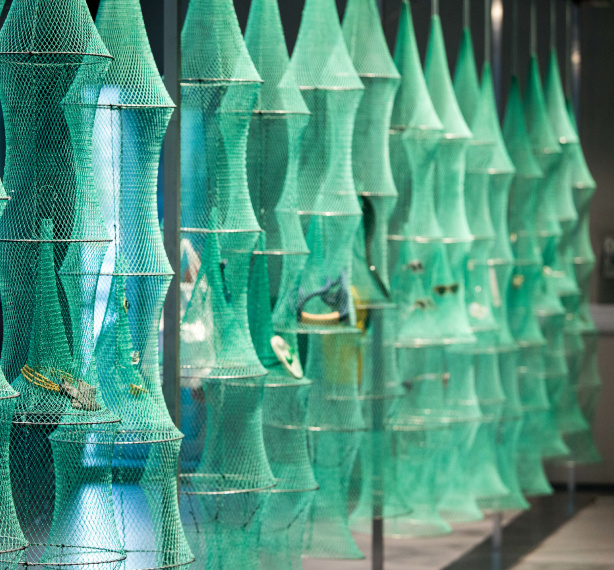In Praise of Silk: Fashion from China National Silk Museum Across Time

Silk, a natural material that was first used in China around 6000 years ago, still outperforms even the most high-tech artificial fibres and continues to be considered the epitome of style and luxury. A recent exhibition at HKDI’s d-mart explored this wonder material
In Praise of Silk: Fashion from China National Silk Museum Across Time featured a magnificent collection of contemporary fashion and historical costume designs. The exhibition, a collaboration between HKDI’s Department of Fashion and Image Design (FID) and the China National Silk Museum, the world’s largest silk museum, paid tribute to mulberry silk, the fibre that made China famous since historical times.
According to Zhao Feng, Director of China National Silk Museum, the museum’s collection is unique in representing “A complete collection and history of silk works throughout different categories, periods and regions. The museum provides a rich overview of silk work throughout history, from ancient relics through to the collection of modern silks and fashion.” Zhao also points out that the museum allows visitors to appreciate “The contrast between Chinese and Western cultures, as well as providing information about crafting and weaving tools.”
The exhibition at d-mart covers a truly impressive timescale, from ancient pieces dating from as far back as the Wei and Jin periods, the Song Dynasty, right through to the modern era. It demonstrates the continuity in the use of traditional emblems such as birds, lilies and flowers, throughout the ages. Aside from precious exhibits from China National Silk Museum, and in celebration of the recent announcement that Hong Kong-style cheongsam sewing techniques will be inscribed into the list of Intangible Cultural Heritage of Hong Kong, the exhibition hosted a collection of cheongsam from Cheongsam Connect. Also on display was a stunning design from seasoned couturier Barney Cheng, as well as a dazzling selection from renowned fashion label Blanc de Chine. Taking an overview of the history of silk, In Praise of Silk: Fashion from China National Silk Museum Across Time allows the visitor a chance to see the future direction of the craft. Zhao Feng elaborates, “Huang Wen Ying’s work reflects her thoughts on contemporary life, as well as her reinterpretation of traditional weaving and fabric designs. Computing technology allows more complex weaving pattern designs and weaving, which provides the freedom to express meaning. By using looming techniques and technologies, craftsmen and women attempt to discover the passion and warmth of life. Using a digital jacquard machine and metallic materials during the weaving process allows for the expression of complex imagery.” To coincide with the Grand Opening of HKDI’s Fashion Archive, the exhibition’s opening ceremony was held on 29 September 2017 with renowned fashion designer Barney Cheng as the Guest of Honour. |

|
Others

Latest News | 1 March 2018
Exporting Shenzhen’s design culture

Latest News | 1 March 2018
Shenzhen’s Shifting Fortunes

Latest News | 1 March 2018
KEEP WATCH-ING

Latest News | 1 March 2018
Into the Laboratory

Latest News | 1 March 2018
Different Paths

Latest News | 1 March 2018
Are you working well?

Latest News | 1 March 2018
Adventures in Space

Latest News | 1 March 2018
The Chain

Latest News | 1 March 2018
Future-facing Retail
